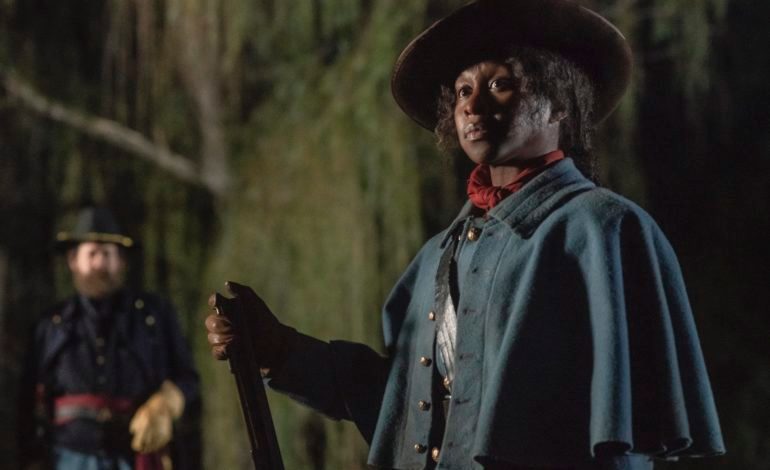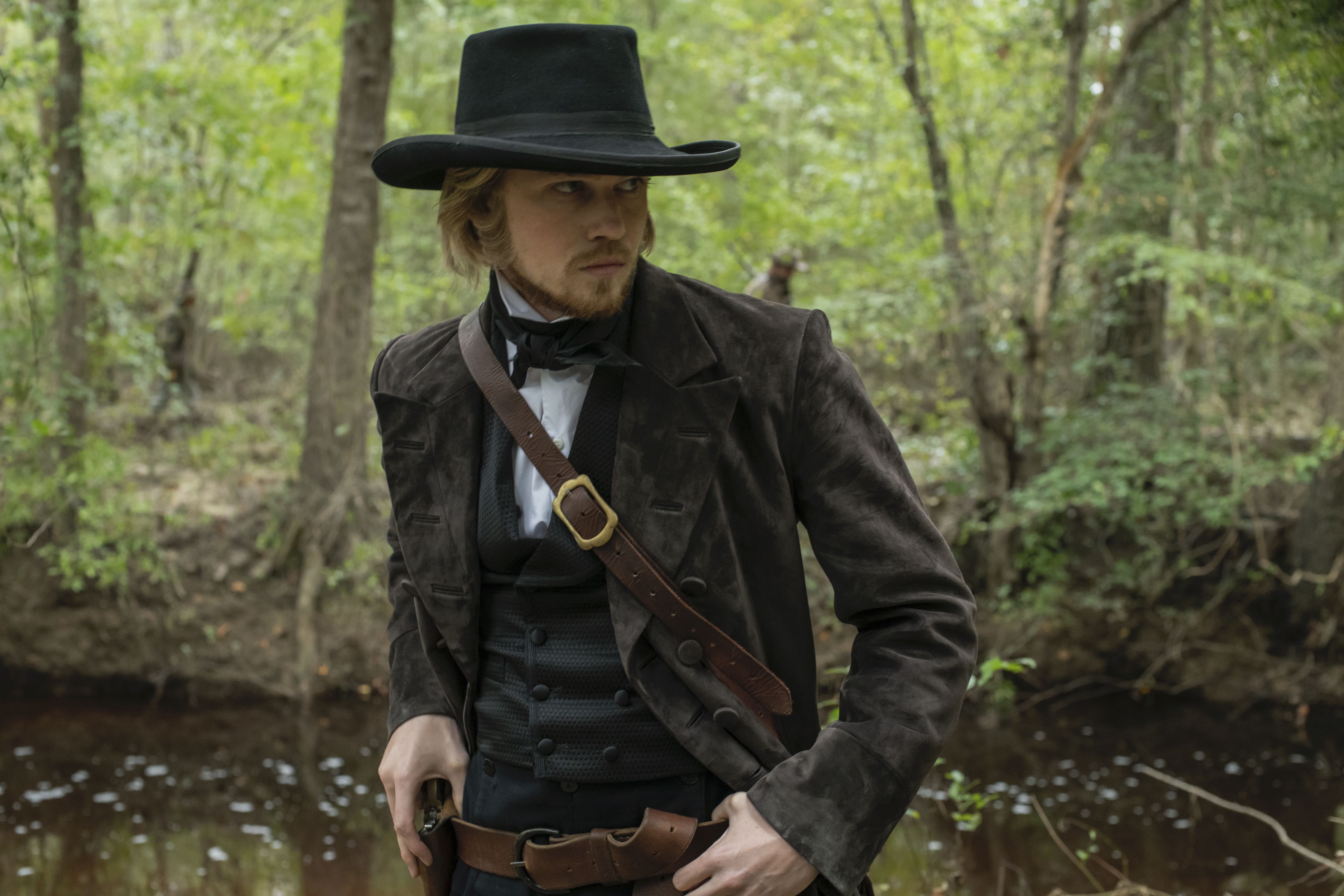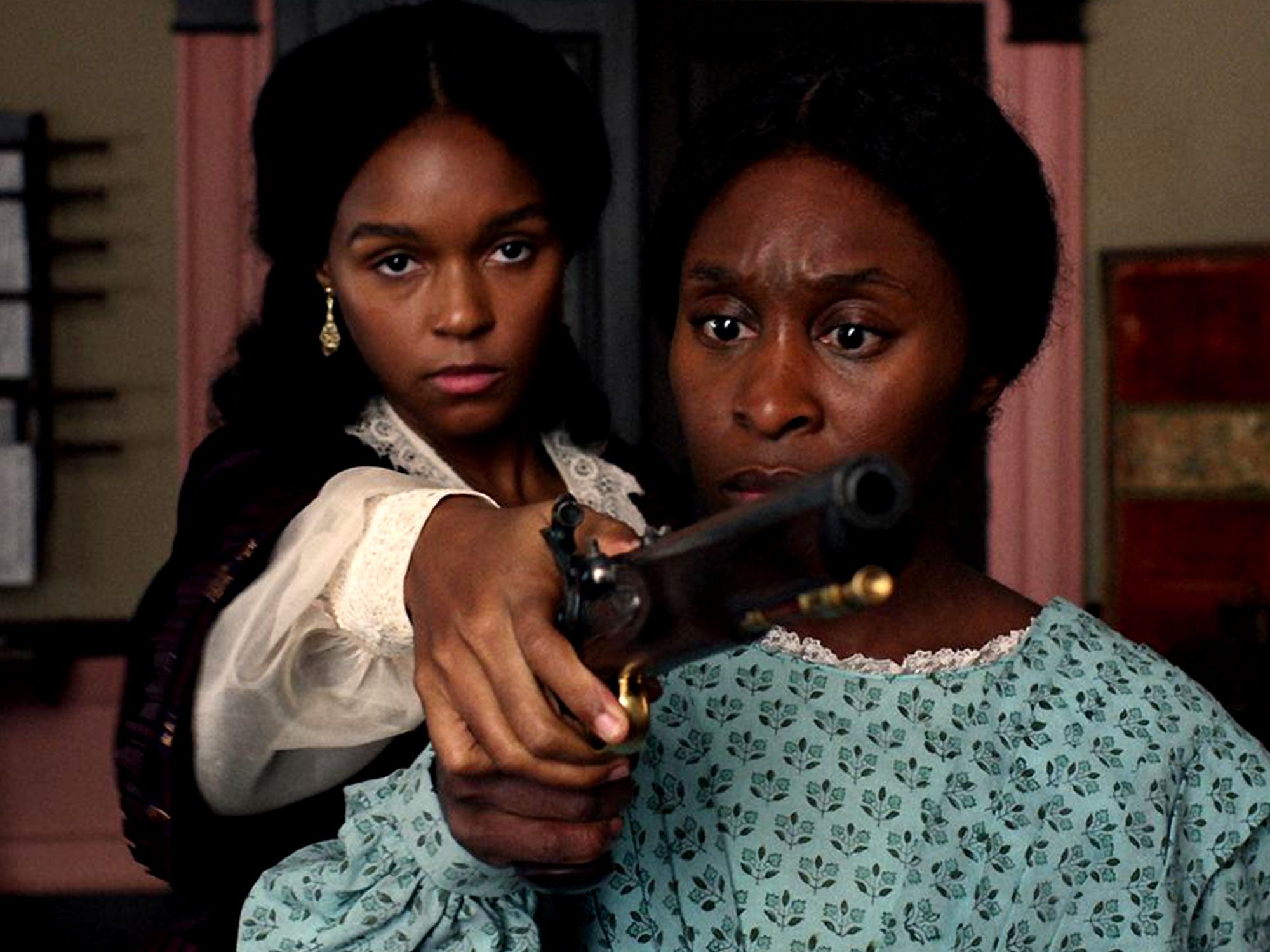

Making a biopic is a notoriously impossible gig. How can you pack an entire life, or even its highlights, into a ninety-minute to two-hour timeframe? How can you balance creativity with historical accuracy to produce a complex and innovative work of art without undermining the subject’s story? How should you elevate a biographical film beyond a mere rehash to “cinema?” These are all challenges director Kasi Lemmons (Eve’s Bayou) confronts in Harriet—and it shows. Faced with the monumental task of depicting one of the most revered figures in American history, Lemmons has created what is both a mediocre film and genuinely loving memorial to antislavery icon Harriet Tubman.
The film begins before Harriet is, well, Harriet. In 1849, she is still Araminta “Minty” Ross (the spectacular Cynthia Erivo of Widows and Bad Times at the El Royale), a young slave to the Brodess family. Thanks to the prophetic visions she’s been experiencing since a childhood brain injury, Minty realizes she’s about to be sold and separated from her husband John Tubman (Zackary Momoh) and the rest of her family. Determined to be free—dead or alive—Minty escapes her owners, much to the chagrin of Gideon (Joe Alwyn), the Brodess son closest in age to Minty. The two grew up together, and Gideon appears to be in love with her—or whatever the racist, murderous, tyrannical version of “being in love” is.


I can’t find any information on whether Tubman’s real-life owner had these sorts of feelings toward her, so I’m curious as to why the filmmakers made this choice. Especially with heartthrob-of-the-week Alwyn playing Gideon, it initially felt a bit soapy and borderline disrespectful, like the director was studio-compelled to shove romantic melodrama into an already remarkable story. While Minty never reciprocates Gideon’s feelings and ultimately treats him with complete disdain, I thought I saw a few, ever-so-subtle conflicted glances on her part near the beginning of the film. However, I think Harriet probably means to show how deeply poisonous racism can be, causing Gideon to suppress his desires and express them through a violent need for ownership and control. That need only grows once Minty flees the farm and Gideon rallies up a search party that, unbeknownst to him, will last for years.
With Gideon on her trail and God as her guide—she thinks of her trances as conversations with the creator himself—Minty finally makes it to Philadelphia. There, she meets William Still (Leslie Odom Jr.) of the Pennsylvania Anti-Slavery Society and Underground Railroad and is taken under the refined wing of Marie Buchanon (Janelle Monáe). Here, Minty selects her “freedom name”: first name Harriet, after her mother, last name Tubman, after her husband. As Harriet begins trekking back and forth between the north and south, rescuing more and more slaves, she adopts another name, one stamped across every wanted poster in Maryland: Moses.
In following the protagonist’s slave-smuggling exploits, Harriet begins zipping around the East Coast in such a disorienting fashion that it feels like Philadelphia and Dorchester County are separated by as little as a hop over a picket fence. While Harriet’s first couple trips between the two towns are shown in grueling detail, the film soon pulls a Game of Thrones Season 7 and throws real-time travel out the window. Perhaps this goes to show how Harriet’s growing experience and confidence allow her to pooh-pooh the journey she once found so perilous, but it also leaves you scratching your head on where she is, how she got there, and how much time has passed.
Just as the diegetic passage of time was unclear, I could never figure out how far I was into this film. While its meandering structure is true to life, and I understand the dangers of forcing a person’s life into pre-packaged story beats, Harriet sometimes feels less like a story and more like a sequence of events. Its two hour run time trudges rather than builds, concluding with a satisfying image, but an image nonetheless, rather than a culmination.


Within this wandering narrative, however, the film raises some interesting points. Seldom have I seen internal conflicts within the black community depicted in slavery-era films. Harriet highlights the differences between African Americans who were born free and those who fought tooth and nail for their freedom. It may seem strange, considering the jump in genre and time period, but this brought to mind two recent examinations of the relationship between the haves and the have-nots among black protagonists: Jordan Peele’s Us and Ryan Coogler’s Black Panther. While some aspects of Harriet feel dated, this detail feels very much of the time.
The film’s treatment of surviving as a slave—not just physically, but emotionally—is another one of its more insightful qualities. When Harriet returns to Dorchester County to retrieve her husband, he says he’s since remarried and has a kid on the way. Harriet is heartbroken and enraged. However, she then gets some perspective from her sister, who also remarried and tells Harriet she cannot judge them for moving on in order to stay sane. Not only does Harriet refuse to gloss over important realities in the slave experience—that one doesn’t have the privilege of waiting for loved ones and instead must constantly adapt and readapt to life—but it posits emotional endurance as equally important to physical strength.
Of course, I would be remiss not to mention Marie’s response to Harriet’s heartbreak over John’s remarriage. “Harriet, you are so far beyond any man I have ever met,” Marie says while leaning over the bathtub and brushing Harriet’s hair with maternal care. “What’s a man to a woman touched by God?” In moments like these, Harriet gleams because its cast does. Erivo’s Harriet feels like a real person—both vulnerable and fiery at once, instead of some man’s imagining of a one-dimensional “tough” lady—and her relationship with Marie, while underdeveloped thanks to the film’s mad dash through history, is beautiful. Also notable is Henry Hunter Hall as Walter, a tracker Gideon hires to catch Harriet and the other escaped slaves. Hall is able to project an entire character arc in a single facial expression.


With such a great cast carrying a flawed script, Harriet makes it even more difficult for me to critique it. I just wish the film didn’t so often feel like a very expensive, exceptionally well-cast History Channel reenactment. I wish it didn’t feel like something from the early aughts. The trumpet-stuffed score by Terence Blanchard (whom I usually adore in his Spike Lee collaborations) and treacly writing kept making me think of 2000’s Remember the Titans, which first felt annoying and irrational on my part. But it turns out Lemmons co-wrote the script for Harriet with Gregory Allan Howard, who is also credited for writing—you guessed it—Remember the Titans.
As much as I wish these things, I keep thinking about an escape montage set to Nina Simone’s “Sinnerman” that I genuinely consider to be a stroke of genius. More importantly, my heart did flutter watching Harriet come into her own as a leader, demanding that no one underestimate her ever again. That aspect of the movie clearly succeeds.
Verdict: 2.5 out of 5 stars
Harriet is an imperfect film, but a worthy one, and I have to admire such an immense undertaking by Kasi Lemmons. While most of the film treads familiar ground, its protagonist does not; Harriet Tubman is a pioneer worth celebrating in theaters, and that’s reason enough to go see the movie.
